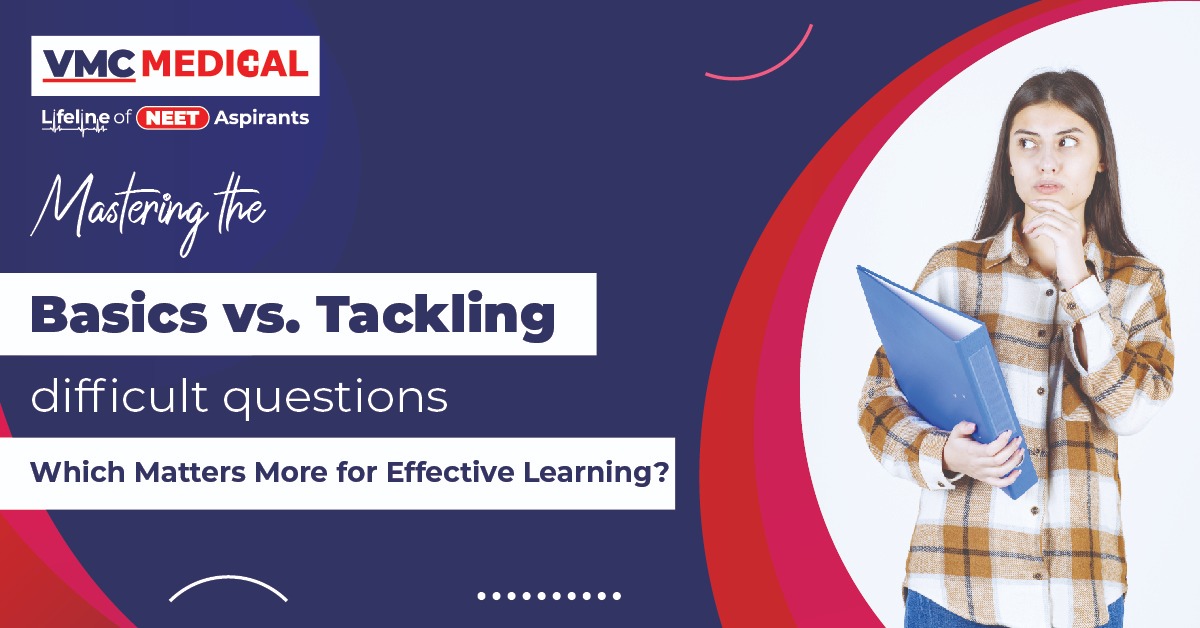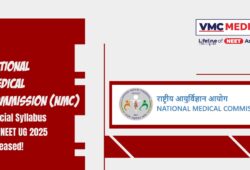Mastering the Basics vs. Tackling Difficult Questions: Which Matters More for Effective Learning?
 Posted On
Posted On
108 total views, 2 views today
When preparing for exams or learning new concepts, one critical question often arises: is it more beneficial to practice difficult questions, or should more time be spent covering the basics? While both approaches play a role in achieving proficiency, mastering foundational concepts before diving into advanced questions is key to long-term success. This article explores why understanding the basics is essential, how it builds the groundwork for handling more complex problems, and offers strategies for achieving an effective balance between the two.
1. Why the Basics Matter
Foundational knowledge is not just a starting point; it’s the core framework upon which all advanced learning is built. Here’s why basics are so essential:
- Foundation for Complex Concepts: Almost every challenging question or complex problem can be broken down into simpler components. A solid grasp of basic concepts enables you to deconstruct these questions into manageable parts.
- Problem-Solving Confidence: When students understand the basics, they feel more confident, which reduces anxiety and builds resilience. Without this foundation, tackling difficult questions can feel overwhelming, leading to frustration and self-doubt.
- Adaptability Across Topics: Mastery of fundamental concepts makes it easier to adapt when faced with new topics or problems. This adaptability is crucial in exams that test understanding rather than rote memorization.
2. Common Pitfalls of Jumping Straight to Difficult Questions
Diving straight into challenging questions might seem efficient, but it often leads to unnecessary setbacks. Some potential pitfalls include:
- Misunderstanding Key Concepts: When students skip the basics, they’re likely to make errors in understanding or interpreting the problem, leading to incorrect solutions or poor performance on tests.
- Burnout and Demotivation: Consistently working on difficult questions without foundational knowledge can lead to frustration, reducing motivation and creating a negative association with the subject.
- Wasted Time: Attempting difficult questions without the necessary skills or knowledge means spending extra time going back to relearn concepts, a process that could be avoided by mastering the basics first.
3. The Role of Basics in Different Subjects
Each subject has its own unique foundational concepts, making it important to understand what the “basics” mean within different fields of study:
- Mathematics: Basics in mathematics include understanding operations, algebra, and equations. Without these, topics like calculus, trigonometry, and complex equations become daunting.
- Science: In physics, concepts like Newton’s laws, forces, and energy lay the groundwork for understanding more intricate phenomena. In biology, knowing cellular structures and functions is essential for exploring advanced topics like genetics and molecular biology.
- Language and Writing: Basic grammar and vocabulary are critical before attempting advanced essay writing or literary analysis. Without a solid grasp of these basics, it’s difficult to express ideas clearly or interpret complex texts.
4. When to Introduce Difficult Questions
After mastering the basics, gradually introducing more challenging questions helps strengthen problem-solving skills and provides a new depth of understanding. The transition should be done thoughtfully:
- Progressive Difficulty: Start with intermediate questions that require the application of basic concepts in new ways. This step bridges the gap between foundational knowledge and advanced problem-solving.
- Consistent Review: While practicing difficult questions, revisit basic concepts regularly to reinforce understanding. This keeps foundational knowledge fresh and allows students to identify areas that need reinforcement.
- Focus on Problem-Solving Strategies: In addition to practicing hard questions, focus on learning strategies for approaching these problems. This includes techniques like breaking down the question, identifying known and unknown variables, and verifying answers.
5. Strategies for Balancing Basics and Advanced Practice
Balancing foundational learning with challenging questions is key to becoming a confident, adaptable problem-solver. Here are some practical strategies to achieve this balance:
- Divide Study Time Wisely: Allocate about 60-70% of your study time to reviewing basics and 30-40% to practicing advanced questions. As you become more confident in foundational concepts, adjust the ratio to suit your needs.
- Use a Layered Approach: Practice layered learning by studying basics in the initial phase, followed by moderate questions, and then moving on to challenging ones. This approach allows you to reinforce your understanding while gradually increasing the difficulty.
- Regular Assessments: Take self-assessments or quizzes on basic concepts and gradually introduce advanced questions. This helps in identifying strengths and weaknesses, ensuring that foundational gaps are addressed early on.
- Seek Feedback and Guidance: Consulting teachers or mentors on which basics need reinforcement before tackling more difficult questions can make a big difference. They can help pinpoint which areas to focus on and provide targeted resources.
6. How Basic Knowledge Enhances Problem-Solving Abilities
Mastery of the basics doesn’t just improve scores; it builds cognitive skills that are essential for tackling real-world problems:
- Logical Thinking: Basic concepts provide a logical framework, enabling students to approach questions systematically rather than randomly guessing or feeling lost.
- Pattern Recognition: Recognizing patterns is a crucial skill in problem-solving, especially in subjects like mathematics and science. When students know the basics well, they can spot these patterns more easily.
- Enhanced Focus and Efficiency: Familiarity with foundational concepts reduces cognitive load, allowing students to focus more on problem-solving rather than understanding individual elements of the question.
7. Long-Term Benefits of Strong Basics
Investing in basic knowledge has advantages that extend beyond exams and academic achievement. Here’s how a strong foundation pays off in the long run:
- Adaptability Across Different Fields: Basic principles, especially in fields like mathematics and science, are universally applicable and transferable across many areas, making it easier to learn new skills or fields of study later in life.
- Skill Development for Advanced Careers: Many high-demand careers, from engineering to medicine, require a deep understanding of core concepts. Building a strong base during academic years can create a seamless transition to these fields.
- Increased Self-Confidence: Knowing you have mastered the essentials instills confidence and provides the courage to tackle harder questions without fear of failure.
8. Real-Life Examples: Basics in Action
Understanding the value of basics is easier when we see how they apply in real life. Take a look at how professionals rely on foundational knowledge:
- Engineers: Engineers regularly use basic principles of physics and mathematics to solve complex problems. They apply foundational equations and laws to develop innovations or troubleshoot issues, highlighting the importance of a thorough understanding of basics.
- Doctors: Doctors rely on basic biology and chemistry to understand the human body and to diagnose diseases. Without these fundamentals, it would be impossible to comprehend advanced medical treatments or innovations.
- Artists and Designers: Even creative fields require a strong grasp of basic techniques, such as color theory or proportion, before one can create sophisticated works or experiment with new styles.
Closing Thoughts
Mastering the basics before tackling difficult questions is essential to building confidence, reducing study-related stress, and ensuring long-term academic success. Basics provide the foundation upon which all advanced learning is built, allowing students to approach complex questions with a clear, logical framework. While challenging questions play a crucial role in strengthening problem-solving skills, their effectiveness is amplified when they are approached with a solid grasp of foundational concepts. Embracing this balanced approach not only prepares students for NEET exam but also lays the groundwork for success in professional and personal pursuits alike.



